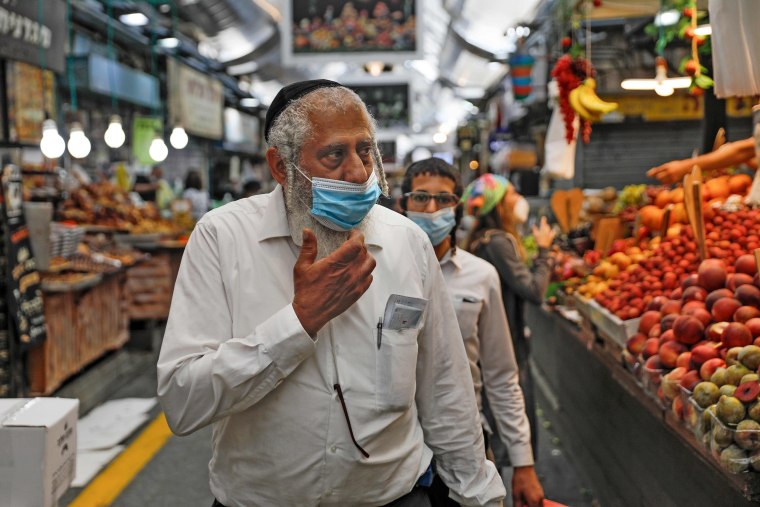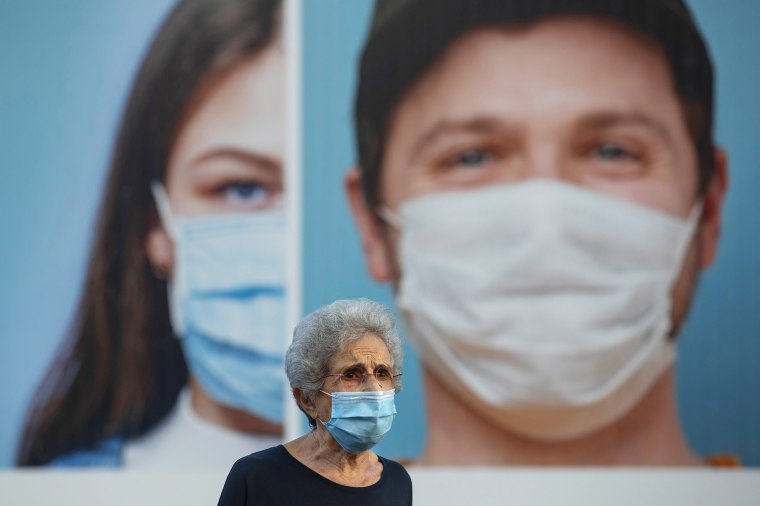Israel reimposed sweeping restrictions Friday on daily life in response to a surge in coronavirus cases and amid growing public anger over the government’s handling of the crisis.
The government said that as of 5 p.m. local time Friday (10 a.m. ET), gyms and exercise studios will be closed to the public and restaurants will be closed for indoor dining. However, competitive athletes will be able to keep training indoors.
Tighter restrictions will also be introduced including the closure of stores, beauty salons, museums and tourist attractions on the weekends. Starting later this month, beaches will also be closed to the public on weekends, the government said.
"We are making every effort to avoid a general lockdown,” Prime Minister Benjamin Netanyahu said at a Thursday evening Cabinet meeting during which the new restrictions were discussed. “The disease is changing speed and we must change together with it.”
By late May, Israel had largely contained its outbreak, following a strict lockdown in the spring that even limited the number of feet residents were allowed to go from their homes. But cases have soared in the weeks since the restrictions were lifted, with Israel reporting at least 1,929 new cases Thursday alone.
Some 392 people have died since the start of the outbreak.
It remains unclear what restrictions will be placed on schools when they return in September. Their reopening along with other spaces earlier this summer has been blamed by some for the new wave of cases.
The new restrictions, which will not apply to essential stores such as pharmacies and food stores, come amid growing public anger against Netanyahu and the government for their handling of the coronavirus crisis and the country’s economic recovery.

In recent days, demonstrations have been held outside the prime minister’s residence in Jerusalem with around 200 protesters turning out Thursday night. Demonstrations are also planned in Jerusalem on Friday and in Tel Aviv on Saturday.
According to the new restrictions, a maximum of 10 people will be allowed to meet indoors and a maximum of 20 outside. The violation of any of the new measures will be a criminal offense, according to the government.
The latest restrictions follow an attempt by Netanyahu’s government this week to support the economy by offering Israelis financial support in the hope that it would fuel consumption.
On Wednesday, Netanyahu said the government would transfer money to all Israeli citizens.
Parents, he said, will receive between 2,000 (around $580) and 3,000 shekels (around $870) depending on the number of children they have, while Israelis without children will receive 750 shekels per person (around $218).
Paul Goldman reported from Tel Aviv and Saphora Smith from London.
